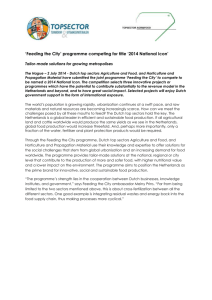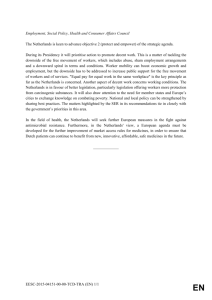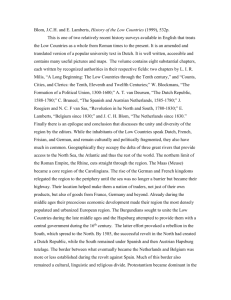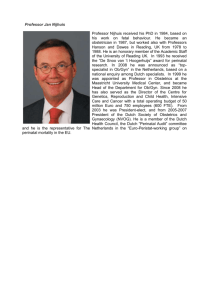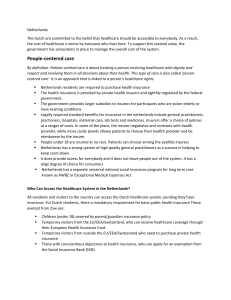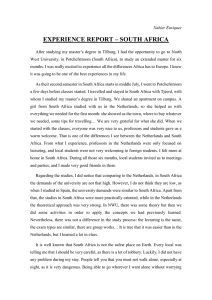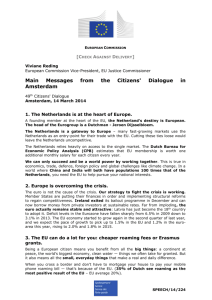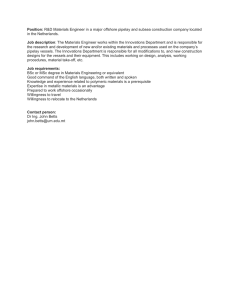here - Netherlands Embassy in Zagreb, Croatia
advertisement
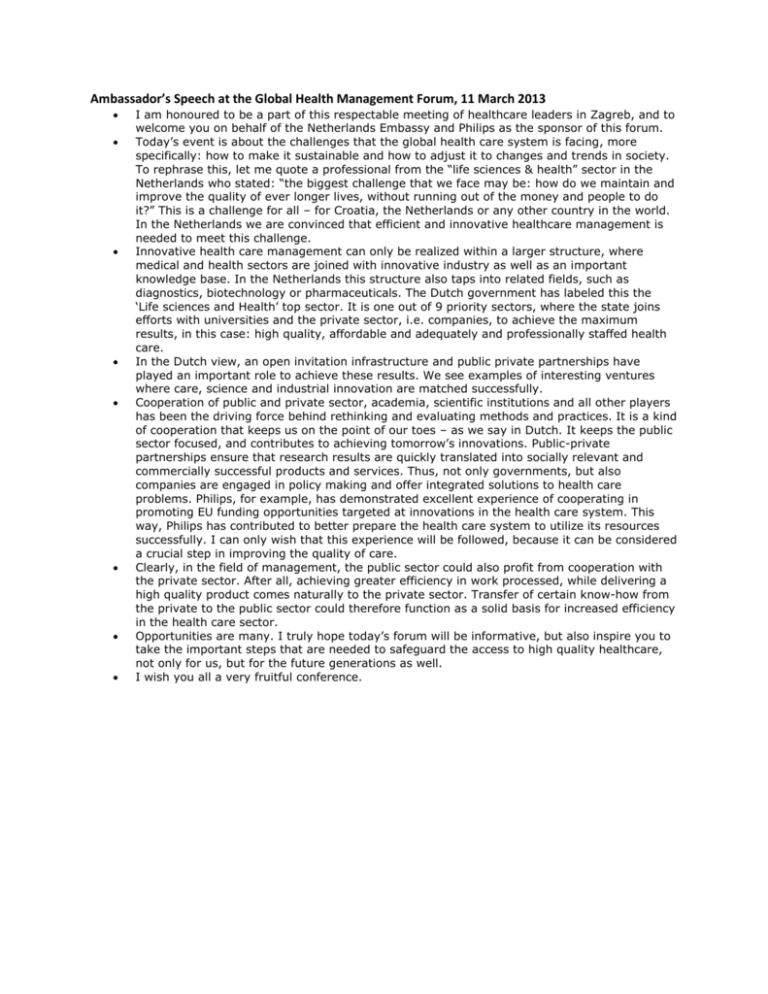
Ambassador’s Speech at the Global Health Management Forum, 11 March 2013 I am honoured to be a part of this respectable meeting of healthcare leaders in Zagreb, and to welcome you on behalf of the Netherlands Embassy and Philips as the sponsor of this forum. Today’s event is about the challenges that the global health care system is facing, more specifically: how to make it sustainable and how to adjust it to changes and trends in society. To rephrase this, let me quote a professional from the “life sciences & health” sector in the Netherlands who stated: “the biggest challenge that we face may be: how do we maintain and improve the quality of ever longer lives, without running out of the money and people to do it?” This is a challenge for all – for Croatia, the Netherlands or any other country in the world. In the Netherlands we are convinced that efficient and innovative healthcare management is needed to meet this challenge. Innovative health care management can only be realized within a larger structure, where medical and health sectors are joined with innovative industry as well as an important knowledge base. In the Netherlands this structure also taps into related fields, such as diagnostics, biotechnology or pharmaceuticals. The Dutch government has labeled this the ‘Life sciences and Health’ top sector. It is one out of 9 priority sectors, where the state joins efforts with universities and the private sector, i.e. companies, to achieve the maximum results, in this case: high quality, affordable and adequately and professionally staffed health care. In the Dutch view, an open invitation infrastructure and public private partnerships have played an important role to achieve these results. We see examples of interesting ventures where care, science and industrial innovation are matched successfully. Cooperation of public and private sector, academia, scientific institutions and all other players has been the driving force behind rethinking and evaluating methods and practices. It is a kind of cooperation that keeps us on the point of our toes – as we say in Dutch. It keeps the public sector focused, and contributes to achieving tomorrow’s innovations. Public-private partnerships ensure that research results are quickly translated into socially relevant and commercially successful products and services. Thus, not only governments, but also companies are engaged in policy making and offer integrated solutions to health care problems. Philips, for example, has demonstrated excellent experience of cooperating in promoting EU funding opportunities targeted at innovations in the health care system. This way, Philips has contributed to better prepare the health care system to utilize its resources successfully. I can only wish that this experience will be followed, because it can be considered a crucial step in improving the quality of care. Clearly, in the field of management, the public sector could also profit from cooperation with the private sector. After all, achieving greater efficiency in work processed, while delivering a high quality product comes naturally to the private sector. Transfer of certain know-how from the private to the public sector could therefore function as a solid basis for increased efficiency in the health care sector. Opportunities are many. I truly hope today’s forum will be informative, but also inspire you to take the important steps that are needed to safeguard the access to high quality healthcare, not only for us, but for the future generations as well. I wish you all a very fruitful conference.

